Polymers Petrochemicals Recycling Compostable 31-01-2019 - Arhive
China – Polyethylene Terephthalate
PET and its chain inch up,but
continues the slowdown in trade , due
to the upcoming Chinese New Year
holidays Feb. 4-10.
PET Bottle grade export 1,050/1,085 $/ton – PET Bottle grade domestic market 8,350/8,450 yuan/ton – PET Filament grade SD domestic market 7,800/7,950 yuan/ton – PET Filament grade BR domestic market 7,800/7,900 yuan/ton
PTA Taiwan 820/830 $/ton – PTA domestic market 6,500/6,600 yuan/ton – MEG $ 625/635 $/ton – MEG domestic market 5,050/5,200 yuan/ton – PX Korea 1,045/1,060 $/ton
POY 150D/48F domestic market 8,500/8,600 yuan/ton – DTY 150D/48F domestic market 10,350/10,450 yuan/ton – PSF domestic market 8,900/9,000 yuan/ton
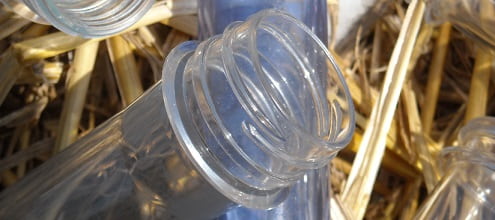
Three major paraxylene producers in the Asian region – South Korean S-Oil, Japanese Idemitsu Kosan and American ExxonMobil – voiced their contract prices for February deliveries of paraxylene in the range of USD1 150-1 160 per ton, sources told ICIS on Wednesday of the market. Paraxylene manufacturers Asia prices
In particular, S-Oil nominated its February contract price for the material at the level of USD1,150 per tonne, CFR Asia.
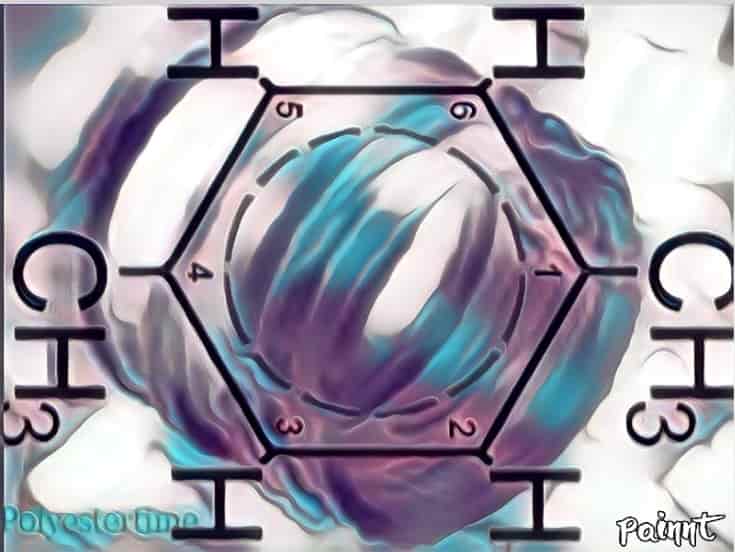
- Crude Oil Prices Trend

Composting
From coffee capsules to nacho trays, Ingeo-based packaging and serviceware contaminated with food waste can be diverted from landfills into industrial composting or organics recycling. For the right products in the right localities, it’s an innovative way to take a step in the right direction.
Some end products made with 100% Ingeo, depending on the application, will compost in municipal/industrial facilities according to ISO, ASTM, and EN regulations, and Ingeo resin is certified appropriately. All final products made from Ingeo must undergo their own compostability testing.
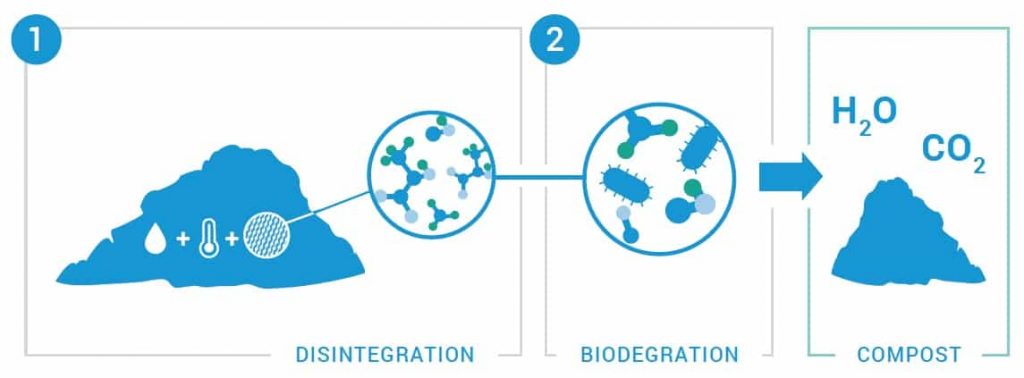
Green alternative to PET could be even greener
One of the most successful plastics is polyethylene terephthalate (PET), the material we use to make bottles and fibers for clothing.
However, PET is made from petroleum-based building blocks. An alternative to PET can be made from bio-based furan molecules, but to polymerize these furans you need toxic catalysts and high temperatures.
Now, polymer chemists from the University of Groningen, led by Prof. Katja Loos, have described an enzyme-based polymerization method. Their results were published in the journal ChemSusChemon 29 January.

An Irish deposit and return scheme (DRS) for plastic bottles could be introduced as part of government plans to ensure most single-use bottles are collected.
Targeting a 90-per-cent collection rate for single-use plastic bottles in Ireland, environment minister Richard Bruton has set up a major review commission.
Plastic waste causes chronic pollution on land and sea and contributes to climate change as it breaks down.
Bruton told the media he was committed to increasing overall plastic recycling rates to 55 per cent by 2030.
Dublin is committing to a collection rate for plastic bottles of 90 per cent by 2029.

Novozymes has entered into a partnership with French Carbios and its subsidiary Carbiolice, which aim to launch degradable bioplastics with limited lifespan for the packaging industry by 2020.
Under the terms the agreement, Novozymes, the world’s largest enzyme supplier, will upscale and produce Carbios’ patented plastics-degrading enzymes. Novozymes also agreed to become the long-term exclusive supplier for those plastics-degrading enzymes to Carbiolice.
Carbiolice is a joint venture formed in September 2016 by Carbios, Limagrain Céréales Ingrédients and Bpifrance in order to produce and licence a new generation of biosourced and biodegradable single-use plastics with in-built enzyme pellets that limit the plastics’ lifespan. Full biodegradability of single-use plastics such as poly-lactic acid (PLA) and poly-ethylene (PE) has been achieved by embedding enzymes into plastic materials during production, thus enabling them to fully biodegrade with a controlled life span.

Turkish Airlines launched the first direct flight from Ankara to Rome after 60 years on Jan. 7. The new route seals the strong relations between Turkey and Italy. Indeed, with its 131 flights a week to 10 Italian cities, Turkish Airlines is the main carrier for Italian tourism. The mutual connections are long-standing: Over the centuries, Italy and Turkey have built important ties and nowadays, they share economic connections. The industrial Italian presence in Turkey dates back to the ’60s when the first joint venture – Tofaş – was established by Turkey’s Koç Holding and Italy’s Fiat group. Today, the companies with Italian participation in Turkey number more than a thousand. Some examples include: In the automotive sector with Fiat-Tofaş, Fiat-Türk Traktor; in banking with Yapı Kredı and Unicredit; infrastructure with Astaldi; defense with Leonardo; agribusiness with Barilla and Ferrero along with other sectors such as textiles, chemical and services.

THE planning proposal for a new water bottling plant near Penrith (Herald, 29th December) is of great concern to local environmental group Penrith Action for Community Transition (Pact) in that it raises several issues including fundamental questions about the future sustainability of local industry.
If the intention is to bottle 25 million litres of water in single-use plastic bottles, this would be completely out of step with the national move away from plastic packaging, particularly after the BBC’s Blue Planet series brought widespread attention to the extensive damage being done to our oceans.
In response, many supermarkets have announced plans to reduce use of plastic in mainstream retail. However, given that over several generations we’ve all become accustomed to the convenience of single-use plastic, it’s apparent that the necessary changes to unpick complex production and supply infrastructure all take time to implement.
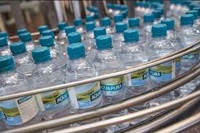
The two polyester feedstocks – purified terephthalic acid (PTA) and monoethylene glycol (MEG) – in the world’s most important polyester market China, have recently moved towards a total paper business.
The MEG futures market was officially launched on 10 December at the Dalian Commodity Exchange (DCE), while the decade-old PTA futures market at the Zhengzhou Commodity Exchange (ZCE) moved to welcome non-Chinese participants on November 30.
Wood Mackenzie’s Chemicals principal consultant Salmon Lee has monitored the Asian polyester chain since joining PCI Xylenes and Polyester China Limited in 2009 following almost a decade as a reporter on the PTA and MEG markets, before that he was a diplomat in the service of the Singapore Ministry of Foreign Affairs. Here he shares his thoughts on how the advancement of these Chinese futures could impact the global polyester industry.

Potentially price competitive with petroleum-based isoprene, made with 100% renewable carbon
Gevo, Inc. , a leading renewable fuels and chemicals manufacturer, announced today that it has developed a proprietary, breakthrough catalytic process that transforms low-cost commercially available, or even waste by-product, renewable alcohols into renewable isoprene that would be expected to compete head-to-head on price with natural and petroleum-based chemical equivalents while reducing CO2 emissions.
Isoprene is predominantly used in the production of synthetic-based rubber. The market for isoprene is estimated to be approximately $4 Billion USD by 2025, growing at a compound annual growth rate of 7% or greater driven by growth in the automotive sector.
Gevo recently developed a chemical-based catalytic process to convert low-value “fusel oils,” a mixture of alcohols that are byproducts from fermentation processes such as ethanol production, into renewable isoprene. Fusel oils from the ethanol industry alone equate to about 2.5 million tons of potential bio-based waste feedstock.
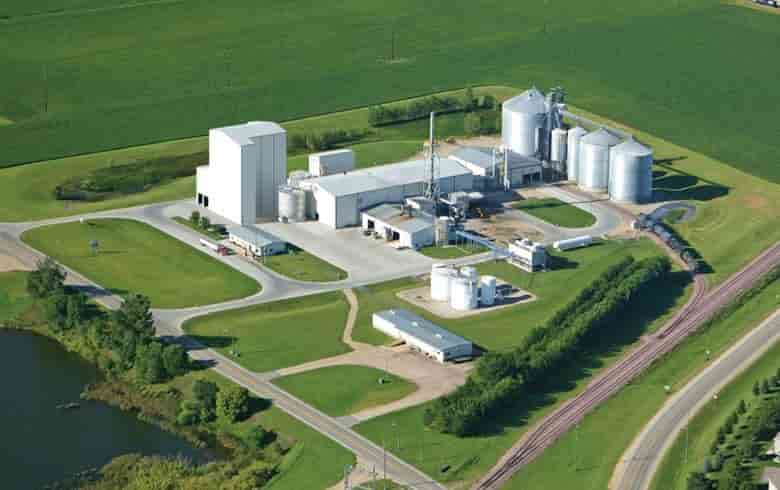
Petrochemical trades in Asia have slackened in the weeks leading to the Lunar New Year holiday as manufacturing in the key China market slows down, with a number of downstream facilities coming off stream.
Amid a general demand weakness in China, some domestic factories could take time to resume production post-holiday, market sources said.
The Lunar New Year, which falls on 5 February 2019, is celebrated in most parts of southeast and northeast Asia with the holiday period ranging from two days to a full week.
China, which is the world’s second biggest economy and a major importer of petrochemicals in Asia, will be on holiday on 4-10 February for the Lunar New Year and Spring Festival.
In some markets, pre-holiday re-stocking has nudged up prices, including those of ethylene, polypropylene (PP), and styrene-acrylonitrile (SAN); while in others, sellers were keen to offload cargoes before the holidays, exerting downward pressure on markets like methyl ethyl ketone (MEK).
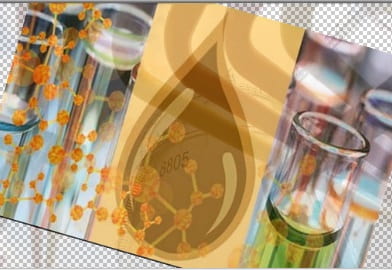
The four-day workweek inevitably softened the spot resin markets, but overall volumes have been healthy in January, notes the PlasticsExchange (Chicago) in its Market Update. In fact, it’s lining up to be the best month of the year!
Polyethylene (PE) contracts shed $0.06/lb in Q4 of 2018, and producers’ attempt to recoup it all this month fell short or, from a processor perspective, produced a welcomed contract rollover.
Polypropylene (PP) contracts shed $0.02/lb to start the year, but it’s the same deuce that should have been relieved in December, as that $0.08/lb decrease was deemed a tad light. Still, the three-month $0.20/lb decline in PP contracts has brought processors substantial price relief, writes the PlasticsExchange. Exports are roaring, Houston warehouses are jammed full and as winter storms and record cold threaten to grip much of the United States, buyers are advised to plan resin needs accordingly, as logistics delays are expected.
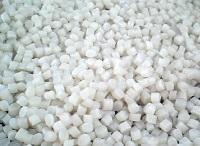
Thermolite EcoMade technology delivers lightweight warmth to keep the wearer comfortable longer. © Invista
Thermolite EcoMade technology delivers lightweight warmth to keep the wearer comfortable longer. © Invista
Invista Apparel and Advanced Textiles will exhibit new products featuring the company’s EcoMade Technology at the upcoming ISPO, the world’s largest multi-segment trade fair focused on sports, which takes place from 3-6 February 2019, in Munich, Germany.
Coolmax EcoMade fibre and Thermolite EcoMade fibre and insulation are made from certified amounts of recycled resources such as plastic bottles and are designed to offer the active/outdoor apparel industry a more sustainable alternative to virgin fibres. EcoMade technology is a key part of the company’s all-encompassing sustainability vision, in which product sustainability is a critical component.

ECHA has submitted a restriction proposal for microplastic particles that are intentionally added to mixtures used by consumers or professionals. If adopted, the restriction could reduce the amount of microplastics released to the environment in the EU by about 400 thousand tonnes over 20 years.
Helsinki, 30 January 2019 – ECHA has assessed the health and environmental risks posed by intentionally added microplastics and has concluded that an EU-wide restriction would be justified. If adopted, the restriction could result in a reduction in emissions of microplastics of about 400 thousand tonnes over 20 years.
ECHA’s assessment found that intentionally added microplastics are most likely to accumulate in terrestrial environments, as the particles concentrate in sewage sludge that is frequently applied as fertiliser. A much smaller proportion of these microplastics is released directly to the aquatic environment.

